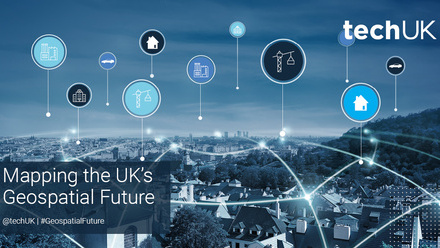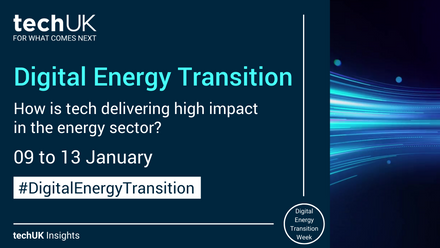techUK at CES 2023 - Day Three: Best Innovations in Smart/Connected Home
On day three at CES we focused on the smart/connected home segment and the ways in which this consumer tech category has the potential to make our daily lives more convenient, efficient, secure, and cost-effective.
This is a topic that techUK is heavily engaged with - every year we publish a ‘State of the Connected Home Report’ that surveys a nationally representative sample of 1,000 adults across the UK to ask about their awareness, interest, and ownership of a range of connected or ‘smart’ home products. Find our 2022 edition here: https://www.techuk.org/resource/state-of-the-connected-home-2022.html
Our survey revealed that British consumers are becoming increasingly familiar with smart home technology and are interested in expanding their adoption of connected devices beyond smart TVs and smart speakers into a far greater range of uses. At CES 2023 we’re seeing the global tech industry respond to this demand and pitching an enormous range of connected home products to the market.
Essentially all new televisions are ‘smart’ / ‘connected’, and this segment remains the largest driver of the smart home market. LG have been doing very well in this year’s innovation awards lists, particularly for a new Signature OLED TV that is the first in the world to receive all of its audio and video wirelessly, providing users with easier installation and more design freedom. Samsung have been doing some very interesting things to make use of the television’s central role within the home and apply this to the healthcare space. Some of their newest range includes a new TV-based health monitoring service that is capable of monitoring users’ heart rate, heart rate variability, respiratory rate, oxygen saturation, and stress index. Should medical assessment be required, the Samsung Telemedicine app can help users to describe their symptoms, find available doctors, and facilitate large-screen telemedicine appointments via videoconferencing.
In the home security space we’re seeing a lot of efforts to integrate artificial intelligence into devices - while connected cameras and detection monitoring systems have been around for a number of years, the newest models are capable of distinguishing between ‘routine’ and ‘non-routine’ events within the home and are therefore able to reduce the number of false alarms. Smart locks continues to be a popular category with improvements to aesthetic design and greater automation through connectivity to phones, smart tags, or facial recognition.
Highlights in the health and wellness space include intelligent air quality monitors and shower filters that can evaluate water quality, as well as smart mattresses capable of optimising temperature and resistance to improve sleep quality. Some of the more innovative products we’ve seen on the floor include a smart baby monitor capable of ‘interpreting’ a baby’s cries to communicate its needs, and a ‘urinalysis’ device that can monitor a range of health metrics from the toilet bowl.
Devices that can improve energy efficiency are naturally featuring prominently, and again a major theme here is building machine learning into connected devices. Samsung have unveiled an intelligent washing machine that optimises washing performance for each load by automatically detecting fabric type and soil levels and adjusting wash time and detergent amount as needed. We’re also seeing home lighting systems capable of learning individual preferences and routines over time, and similar capabilities being rolled out across heating devices and smart blind shades in order to optimise energy performance without impacting the user experience.
On the infrastructure side, we’re seeing increased competition between producers of whole-home control systems, which will ultimately drive down the cost of adopting such systems for consumers. Homeowners in more remote areas will be supported in accessing the benefits of smart home technologies by new innovations in connectivity infrastructure, including Qualcomm’s newly-announced ‘Snapdragon Satellite’ system which will provide satellite connectivity to phones and IoT devices from any location across the globe. We’re also seeing strong levels of interest in interoperability standards, with the Matter Connectivity Standard seemingly poised to become predominant in the connected home space.
Spotlight on UK-based companies at CES 2023:
The UK is home to a number of innovative companies that are leading the way in the development of connected home and lifestyle-related technologies, and we have strong representation in this sector at CES 2023. UK-based companies that are offering something new in the connected home and lifestyle sector, or providing tools that enable innovation in this segment, include:
-
Belume Living is showcasing a completely new product that promises to take the pain out of waking up in the mornings - a smart blackout sleep blind with a light that mimics a sunrise as a wakeup light alarm!
-
CEH Technologies is a Harpenden-based company that have created the world’s first live voice translation earbuds with HD sounds. Sold under the MyManu brand,this product could transform travel and tourism experiences forever!
-
FlexEnable Technology Ltd is a Cambridge-based company that is advancing the development of Organic Liquid Crystal Display (OLCD), bringing transformational possibilities to products including AR and VR optics, ePrivacy screens, automotive smart windows, and displays.
-
MQA are focused on reducing the environmental impact of transferring high-quality audio to a smartphone or audio device. By using advanced methods for audio coding and packaging, MQA reduces greenhouse gas emissions all while delivering unbelievable sound to your ears.
-
Novalia, from Cambridge, are showcasing a large-scale multitouch platform at their booth. The company’s PrintedTouch technology adds touch activation to printed surfaces, while also enabling wireless connectivity and data capture, and has transformative potential for direct mail, packaging, magazines, brochures, books, posters, event installations and museums.
-
Ultraleap is a commercial spin-out from the University of Bristol that is creating haptic technologies capable of stimulating the sense of touch within AR and VR experiences.
Meet techUK at CES 2023
If you’d like to meet with techUK at CES 2023, please get in touch with our Head of Programme for Market Access & Consumer Tech, Lewis Walmesley-Browne at [email protected]
Check out other posts from this techUK @ CES series here:








